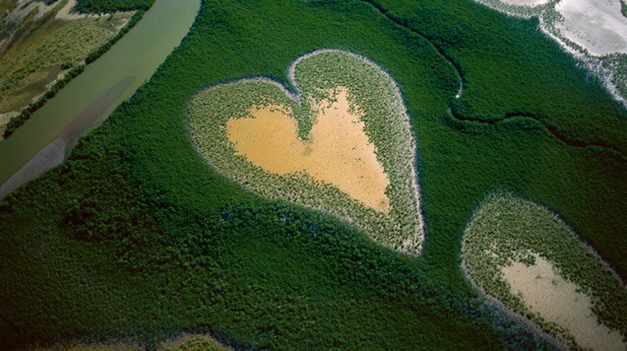
All over the world, for countless centuries, people who we now call indigenous have lived in intimate communion with the world they inhabit. Lacking any sense of separation they found in sun, moon and stars, in river and forest, lake and mountain huge populations of close relatives; of brothers, sisters, cousins, friends, ancestors. The Earth herself was and is their mother, the law of the Universe their father and the Great Spirit animating everything, their religion.
Living in such close communion gives people their rule of personal conduct just as a parent’s relationship with a child governs their conduct as parent or child. Such rules need not be written down: they are internalised and apply without statutes, ordinances or regulations simply because of the existence and nature of the relationship. They are remembered in the way people live, in the stories they tell and in constant interaction between Earth and Man, mother and child.
We now live in an age which has largely forgotten this intimate way of living and this intimate knowledge of law. In consequence of this forgetting human beings have become destroyers and subduers of their mother the Earth and of their friends and relations in the rivers, mountains, forests and oceans. These have become mere resources to be drawn on at will to satisfy human demands. Earth Jurisprudence is an emerging legal science which re-articulates the primordial intimacy of the Earth family.
Earth Jurisprudence has two aspects: the personal and the political. The personal aspect is the intimate relationship with nature. Needing nothing more, the relationship itself defines appropriate conduct just as the conception of a child creates mother and governs her responses. The key to the personal aspect is a deep reverence and respect for mother Earth in all her moods, the reverence and respect that comes from intimate acquaintance with her scale, wildness, beauty, power, creativity, patience, resilience and generosity. Such intimacy generates awe, wonder, love and fear, which are the inner core of respect and reverence. It can only be learnt from constantly renewed exposure to wild nature. The personal practice of the EJ lawyer is to grow and develop into the intimate relationship with Earth that allows Earth law and universal law to be fully known.
The political aspect of EJ is formal law in the modern sense that is consistent with the intimate relationship with Earth. EJ recognises the limitations of formal law and understands that formal law cannot command reverence and respect for nature any more than family law can command family love. EJ can, however, create a legal and political regime drawn from natural intimacy, which supports and is consistent with intimacy with nature, and which mitigates and minimises the destructive effects of relationship breakdown. This political aspect is known as Wild Law.
Wild Law works at all levels of ordinary human law. In the international arena it takes the form of instruments like the World Charter for Nature which expresses an international consensus that mankind is part of nature and that life depends on the uninterrupted functioning of natural systems. Legal consequences flow from that consensus that have mostly yet to find their way into practical implementation but nonetheless such instruments serve to awaken human consciousness and conscience to the pressing need to relate to nature on its own terms.
At the national level the most impressive development has been the recent adoption of the Constitution of the Republic of Ecuador. Article 3 of the Ecuador Constitution guarantees all constitutional rights and these include rights for Nature set out in Chapter Seven: ‘Nature … from which life reproduces and enfolds itself, has the right to the integral respect for its existence and the maintenance and regeneration of its vital cycles, structures, functions and evolutionary processes. Every person, community, people or nationality can require that public authorities comply with nature rights’. The effect of this is that nature itself has a remedy and courts can order repair of unlawful damage to the environment from human activity. People who are not necessarily owners can bring proceedings for the restoration of damaged nature.
While Earth Jurisprudence does not think in terms of rights of people or of nature, Wild Law has to in order to restore the balance that has been lost through modern habits of exploitation, The rights are really the obverse of the natural duty of care of that flows from intimate acquaintance with mother Earth.
A working example of law acting in accordance with Earth Jurisprudence is the constitutional position of the indigenous peoples of the Colombian Amazon. Here, the people have been given constitutional jurisdiction to live in the forest according to their traditional culture and practices thereby preserving their ancient intimacy with the forest and river for themselves and generations to come.
With principles and examples such as these, Earth Jurisprudence and Wild Law can help shape a future for humanity and the Earth which is built on a sense of mutually enhancing relationship. Where nature is no longer seen as an object to be explored, exploited and abandoned when exhausted, but as a common subject with humankind in the universal cycle of life, then a new attitude and a new law become possible. Earth Jurisprudence provides the philosophical foundation and principles for that development. Wild Law is the practical tool for implementing it.







